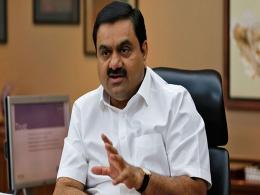The Reserve Bank of India (RBI) on Friday surprised the market by raising key policy repo rate by 25 bps to 7.5 per cent in its attempt to address the inflationary pressures in the first monetary policy review under the new chief Raghuram Rajan.
Here’s what industry stakeholders had to say about the policy move:
Bankers
Chanda Kochhar, managing director and CEO, ICICI Bank, “RBI has taken a balanced approach considering various developments across the globe and their near term impact, as well as the structural imperatives for India. The policy signals the return to the repo rate as the key policy tool as well as RBI’s intention to cautiously unwind the exceptional measures and place greater emphasis on the long term growth-inflation dynamics.”
Most bankers viewed the policy stance as positive for the long-term economic environment as well near term stability in financial market; there was no immediate reaction from banks on hike in the base rates. However, there could be some base rate hikes in the near term once the banks analyse their liquidity situations.
Shyam Srinivasan, MD & CEO, Federal Bank said, “There are several positives that banks can take from the policy. First and foremost, the borrowing costs would come down sharply due to the lowering of interest rate on the Marginal Standing Facility (MSF). The increase in repo rates would have limited impact and would mitigate the reduction of cost due to reduction of rate under MSF marginally.”
The RBI also reduced the minimum daily maintenance of the cash reserve ratio (CRR) from 99 per cent of the requirement to 95 per cent effective from the fortnight beginning September 21, 2013, and this would free around Rs 15,000 crore for the entire banking system which could potentially be used for lending purpose.
Kerala-based Federal Bank is one of the primary benefactors of the easing of NRI deposits. Till yesterday, Indian banks had received $466 million through the FCNR(B) and $917 million through the swap facility adding up to nearly $1.4 billion.
“Stability across markets and the rise of the rupee further should ensure a better environment and breathing space for the RBI to ease the policy interest rates,” said Sanjiv Bhasin – GM & CEO, DBS Bank (India) Ltd.
NBFCs
“The legacy stand of containing inflation continues with the RBI. This is quite contrary to what was the broader expectation from the new RBI Governor. The broader disappointment seems uncalled for as the rise in policy rates is in line with the other emerging nation economies,” said George Alexander Muthoot, managing director of gold loan firm Muthoot Finance.
However, he added, “Considering the RBI is now rightly worried about the Consumer Price Inflation (CPI) than Wholesale Price Index (WPI), which has always been higher, there seems very little room for complacency, even if it comes at the cost of putting a dent to growth in the short term.”
Rating Agencies
Rating agency ICRA said, “The policy stance is RBI relatively more hawkish than expected as it has indicated that further actions could be two-way, contingent on exchange market stability.”
“The magnitude of NRI inflows attracted over the next two months would be critical for the direction of future rate actions by the RBI in light of uncertainty regarding the timing of QE taper and its impact on future FII flows,” said Naresh Takkar, MD & CEO, ICRA Ltd.
Another rating agency, CARE Rating was hopeful of a cut in the interest rate in fourth quarter of the current financial year.
“While policy will be shaped by the inflation number as well as the Fed actions, we are still hopeful of a cut in interest rates of 25 bps in Q4 if inflation is under control (good harvest expected this time) and clarity obtained on Fed’s tapering programme,” it added.
On the whole, measures taken by the RBI today will serve to reduce the sharp spike in short term borrowing costs for banks in the near term, added CRISIL.
Industry Body
The common sentiment is the increase in repo rate could have been avoided as industry is already reeling under pressures of high cost of capital and low availability in a tight liquidity situation.
Chandrajit Banerjee, Director General, CII said, “We understand that the RBI needs to strike a balance between inflation, currency and growth – which is extremely difficult. Industry would have liked reduction in headline rates. The reduction in MSF by 75 bps is encouraging as this is working as the short term interest rate.”
(Edited by Joby Puthuparampil Johnson)







